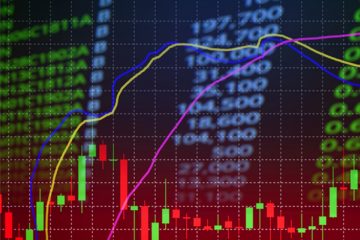From Wellsprings to Wealth Streams: Oil Trading

Oil trading is an integral part of the global economy, impacting nations, businesses, and individuals alike. The evolution of oil trading, from its nascent beginnings to its modern complexities, has shaped the energy landscape in profound ways. This article delves deep into the subject, providing a comprehensive understanding of the oil trading industry, its history, key players, technological advancements, environmental considerations, and future challenges. Among the innovative solutions in this domain, oilprofit.app, an oil trading platform, stands out by offering traders a seamless and highly efficient means to engage in the buying and selling of oil.
The Birth of Oil Trading
The Early History of the Oil Industry
The story of oil trading begins with the exploration and exploitation of oil reserves in the 19th century. Pioneers like John D. Rockefeller played a pivotal role in the development of the industry.
Emergence of Oil Exchanges and the First Oil Contracts
As the demand for oil grew, exchanges like the American Oil Exchange (AOE) were established to facilitate trading. The AOE was instrumental in creating standardized contracts, setting a foundation for the industry.
Role of the American Oil Exchange in Shaping the Industry
The AOE’s innovative contract structure and trading practices influenced the broader oil market. Its success in providing transparency and liquidity set a precedent for future oil exchanges.
Modern Oil Trading Hubs
Overview of Key Global Oil Trading Hubs
Today, several global hubs serve as epicenters for oil trading, including New York (NYMEX), London (ICE), and Dubai (DME). These hubs attract traders, producers, and consumers from around the world.
Comparison of Major Oil Exchanges
Each major oil exchange has distinct characteristics, including the types of contracts offered, trading volumes, and the types of oil products traded. Understanding these differences is crucial for market participants.
Factors Influencing the Choice of Trading Hub
Traders consider various factors when choosing a trading hub, such as time zone, regulatory environment, and proximity to key markets. These choices can impact price differentials and market dynamics.
Participants in Oil Trading
Key Players in the Oil Trading Industry
The oil trading ecosystem comprises producers, traders, and consumers. Producers are often large energy companies, while traders can be independent entities or subsidiaries of financial institutions. Consumers include refineries and end-users.
The Role of Intermediaries and Brokers
Intermediaries and brokers facilitate transactions between buyers and sellers. They play a crucial role in price discovery and ensuring the smooth functioning of markets.
How Financial Institutions and Speculators Impact Oil Prices
Financial institutions and speculators participate in oil trading as a means of investment and hedging. Their presence can lead to price volatility and the decoupling of oil prices from supply and demand fundamentals.
Oil Contracts and Their Significance
Explanation of Different Types of Oil Contracts
Oil contracts come in various forms, such as futures, options, and swaps. Understanding these contracts is vital for managing risk and achieving trading objectives.
How Contract Specifications Affect Trading Strategies
Contract specifications, including delivery terms, quality standards, and contract sizes, have a significant impact on trading strategies. Traders must align their strategies with contract features.
The Role of Derivatives in Managing Price Risk
Derivatives, like futures and options, are essential tools for managing price risk. Hedgers use them to protect against adverse price movements, while speculators aim to profit from price changes.
Technological Advancements in Oil Trading
The Influence of Technology on Trading Efficiency
Technology has revolutionized oil trading, increasing efficiency and reducing transaction costs. Electronic trading platforms provide real-time access to global markets, allowing for faster and more precise execution.
Algorithmic Trading and the Use of Big Data
Algorithmic trading employs complex algorithms to execute trades automatically. Big data analysis aids in price forecasting, risk management, and trade optimization.
Cybersecurity Challenges and Risks in the Digital Era
The increasing reliance on digital platforms exposes the industry to cybersecurity threats. Protecting critical infrastructure and sensitive data is a growing concern.
Environmental and Ethical Considerations
The Environmental Impact of Oil Trading
The extraction, transportation, and consumption of oil have profound environmental consequences. Spills, emissions, and habitat destruction are pressing issues that demand industry attention.
Ethical Concerns Surrounding the Oil Industry
The oil industry faces ethical scrutiny, particularly in regions with poor labor conditions and human rights violations. Transparency and ethical practices are essential for responsible trading.
The Transition to Cleaner Energy Sources
The global shift toward cleaner energy sources, such as renewable energy, challenges the future of oil trading. Market participants must adapt to changing energy dynamics.
Future Trends and Challenges
Predictions for the Future of Oil Trading
Geopolitical factors, technological advancements, and evolving energy demands will continue to shape the future of oil trading. Anticipating market disruptions is key for success.
Geopolitical Factors Affecting Oil Trading
Political tensions, trade policies, and sanctions can disrupt oil markets. Understanding geopolitical risks is essential for market participants.
The Industry’s Adaptation to the Energy Transition
As the world embraces cleaner energy sources, the oil trading industry must diversify and adapt. Investments in renewable energy and carbon reduction initiatives are essential for future relevance.
Conclusion
In the ever-evolving world of oil trading, understanding its history, participants, contracts, and ethical considerations is crucial. Technological advancements and environmental concerns shape the industry’s trajectory. As the world transitions toward cleaner energy, the ability to adapt will determine the industry’s continued significance in the global economy. Stay informed and navigate this dynamic industry with foresight and expertise. Amid these shifts, one such comprehensive resource, “Oil Era,” provides an integrated approach to navigating the complexities of oil trading.




